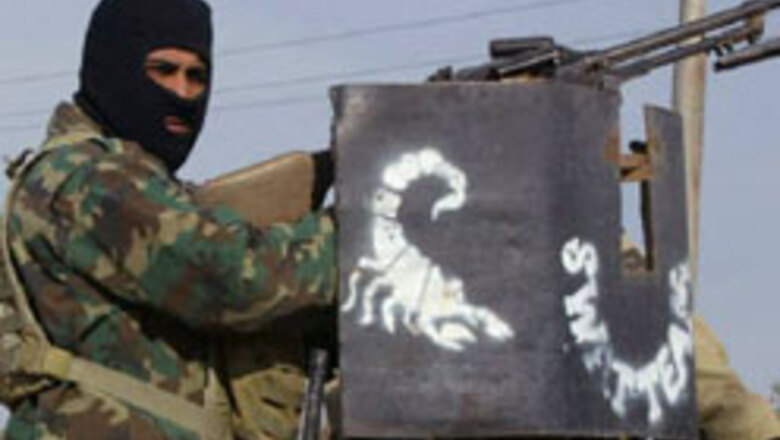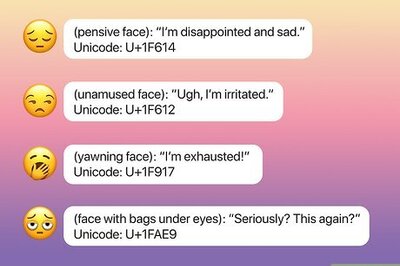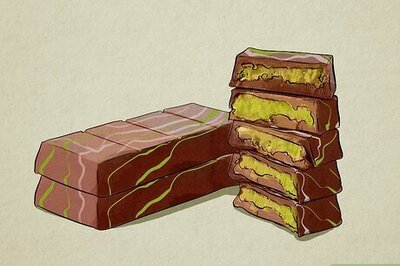
views
Najaf (Iraq): US and Iraqi forces killed some 300 gunmen from an apocalyptic Muslim cult in a day-long battle involving US tanks and aircraft near the Shi'ite holy city of Najaf, Iraqi police, army and political sources said.
The US military said on Monday it was an ongoing operation so it could not provide any details.
An Iraqi army source said US forces took control of the operation on Sunday and bombing continued in the area until well after dawn on Monday, which was the climax of Ashura, the highpoint of the Shi'ite religious calendar.
Two Americans were killed, the US military said on Sunday, when an attack helicopter went down during the battle that was one of the strangest incidents of the four-year conflict. Iraqi officials said the helicopter seemed to have been shot down.
Police Colonel Ali Nomas said 300 to 350 gunmen had been killed in the operation and dozens more arrested. Three Iraqi soldiers were killed and six more missing, and five policemen were killed. Another 40 Iraqi police and soldiers were wounded.
According to one Iraqi political source, hundreds of fighters, drawn from both Sunni and Shi'ite communities, fought throughout Sunday and late into the night.
A Reuters reporter at the scene, 160 km (100 miles) south of Baghdad, saw US tanks and heard blasts after dark on Sunday and an Iraqi officer said F-16 jets were bombing the area.
Details of the day's fighting were sketchy and the origins of the fighters unclear. An Iraqi army source said some of the dead wore headbands declaring themselves a "Soldier of Heaven".
The political source said up to 1,000 fighters had been involved. An Iraqi army source said they wore camouflage and appeared well organised.
The US military officially handed over responsibility for Najaf province to Iraqi security forces last month, withdrawing most U.S. troops, to be recalled only to help in emergencies.
PAGE_BREAK
ASHURA
Najaf governor Asaad Abu Gilel told Reuters the authorities had uncovered a plot to kill leading Shi'ite clerics in Najaf on Monday, to coincide with the climax of Ashura, the annual Shi'ite rite marking a 7th century battle which entrenched the schism between Shi'ite and Sunni Islam.
"There is a conspiracy to kill the clergy on the 10th day of Muharram," he said, referring to Monday by the Muslim calendar.
Initially on Sunday the Najaf governor described the fighters as Sunnis, the majority in the Arab world and the once dominant minority in Iraq, where Shi'ites have been in the ascendant since the US invasion of 2003.
The two sects are embroiled in conflict in Iraq that many fear is descending into all-out civil war.
But political and security sources said they were followers of Ahmed Hassani al-Yemeni and described him as an apocalyptic cult leader claiming to be the vanguard of the Mahdi - a messiah-like figure in Islam whose coming heralds the start of perfect world justice.
He had been operating from an office in Najaf until it was raided and closed down earlier this month.
The sources said captured gunmen declared loyalty to Yemeni.
Similar violent cults have been a feature of Islamic history. They have declared temporal Muslim leaders illegitimate infidels and have drawn followers from both Sunni and Shi'ite believers, proclaiming a unity of inspiration from Mohammad.
Among other violent instances associated with proclamations of the coming of the Mahdi were opposition to British rule in Sudan in the 1880s and the siege of the Grand Mosque at Mecca in 1979, when hundreds of men occupied Islam's holiest site.
In today's Iraq, the powerful Mehdi Army militia of Shi'ite cleric Moqtada al-Sadr shares the name but not such ideas.
A US military spokesman said he could not confirm any details of who the gunmen were.
Up to 1.5 millions pilgrims gathered in Kerbala, 70 km north of Najaf, to mark Ashura - the death in battle of Mohammad's grandson in 680, which confirmed the split in Islam between rival claimants to the Prophet's inheritance.
In Kerbala, 11,000 troops and police were deployed. More than 100 people were killed there by suicide bombers three years ago, as Shi'ites marked the first Ashura after the end of heavy restrictions imposed by Saddam Hussein's Sunni-dominated state.




















Comments
0 comment